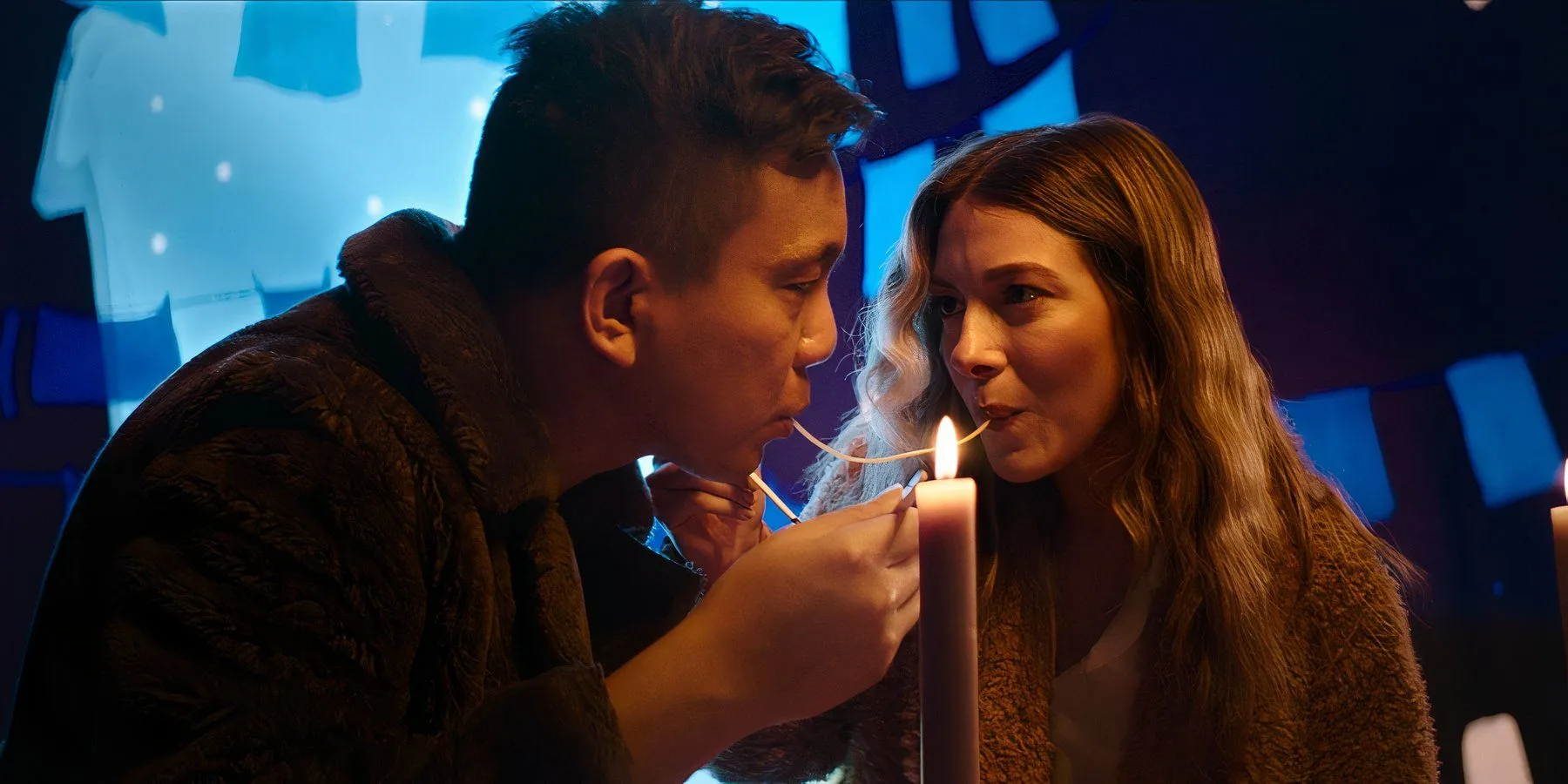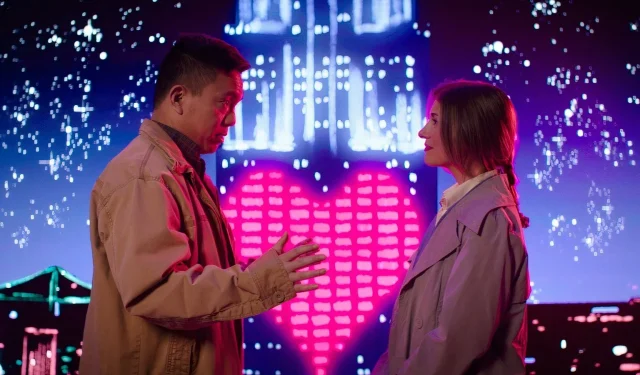Meet Cute in Manhattan: A Love Letter to Rom-Coms
In a refreshing twist, Meet Cute in Manhattan emerges as a love letter to the romantic comedy genre, signaling a delightful resurgence of this beloved category of film. While recent years have seen several valiant attempts at this genre, many have struggled against critics’ claims of being overly formulaic. Thankfully, this film transcends these criticisms, offering a genuinely engaging narrative that feels both fresh and familiar.
The film delves into the conventions of romance, featuring an aspiring rom-com writer navigating his own fictive dating escapade in New York City. This self-awareness serves as a clever device that pays dividends, presenting a humorous yet insightful examination of genre conventions without demeaning the tropes fans adore.
Unraveling Realities and Rom-Com Basics
From the very first monologue—an essential staple of classic rom-coms—the film blurs the lines between reality and fiction. We see Jason (portrayed by Terence Chen) pitching his story in a meeting, interspersed with his actual experiences. This layered narrative unfolds as he enters into a fake relationship with Nora (played by Kendall Leary) for an advertising campaign, which cleverly mirrors the executives’ own romantic undertones.
While this intricate narrative setup may seem ambitious, Meet Cute in Manhattan effortlessly manages this complexity. It offers poignant commentary on various social themes, such as racism in casting and more optimistic perspectives on influencer culture, all while showcasing diverse and substantial relationships. However, the film does experience a slight dip towards the conclusion, missing the grand finale it seems to build towards, yet it retains its affectionate jabs at love, grounded in genuine admiration for the genre.
Understanding the Significance of Romantic Comedies
The best romantic comedies extend beyond the central love story; they resonate with audiences by addressing timeless themes and realistic conflicts. Similar to classics like You’ve Got Mail which critiques corporate culture, or Notting Hill spotlighting the challenges of fame in relationships, Meet Cute in Manhattan adeptly reflects contemporary issues while enriching its character arcs.
A standout aspect of this film is its portrayal of relationships—both romantic and platonic. Jason and Nora, despite both being in other relationships as they grow closer, are not bogged down by the typical trope of villainous exes. Chloe (Amanda Shi), Jason’s partner, though initially perceived as unappreciative, is quickly fleshed out to reveal her hard work and genuine affection for him. Similarly, Kip (Martin K. Lewis) is depicted as a good person, merely misaligned with Nora.
This commitment to realistic dialogue is refreshing; for instance, even the couples sit down to discuss the ad campaign openly, dodging the common miscommunication pitfalls seen in other rom-coms. The film’s refreshing humor even tackles the Bechdel test in a light-hearted manner, addressing criticisms directly, further showcasing its self-awareness.
Humor and Heart: Where Meets Cute in Manhattan Stands Out
Balancing Humor with a Lack of Intensity

While rich with humor and touches of nostalgia, Meet Cute in Manhattan occasionally falls short in delivering the passionate connection that elevates a romantic narrative. Despite the undeniable chemistry between Chen and Leary, the film steers clear of traditional rom-com heat; it is notably a PG feature that lacks intimate moments that often spice up the genre.
The absence of conventional romantic tension is curious, especially as it could have intensified audience engagement. Moments that typically convey attraction or suspense are notably absent, and while the film culminates in a charming spinning kiss, the overall romance can feel placid, leading to pacing issues during key scenes. A touch more emotional dynamism could have seamlessly captivated viewers throughout.
Championing a Romantic Hero for Today’s Audience
Why We Need More Characters Like Jason
Despite occasional drawbacks, Meet Cute in Manhattan is fundamentally a smart and endearing rom-com that fulfills its purpose wonderfully. Throughout, the meta-commentary and humor are highlights, but the most compelling feature is the depth of the character Jason. He is emotionally intelligent and relatable, not the archetypal wealthy hero, but rather an everyday person with dreams and aspirations.
Jason embodies the qualities that viewers crave in a partner: he is supportive, genuinely caring, and possesses a strong bond with his family. His heartfelt support for Nora’s influencer career stands as a pivotal moment in the film, presenting a nuanced relationship dynamic that feels authentic.
Ultimately, Meet Cute in Manhattan resonates with its audience by depicting the relationships we aspire to have—rooted in understanding, encouragement, and mutual respect. This film not only serves its romantic themes well but also establishes a call for more narratives that celebrate heartfelt connections in cinema.


